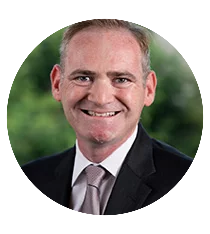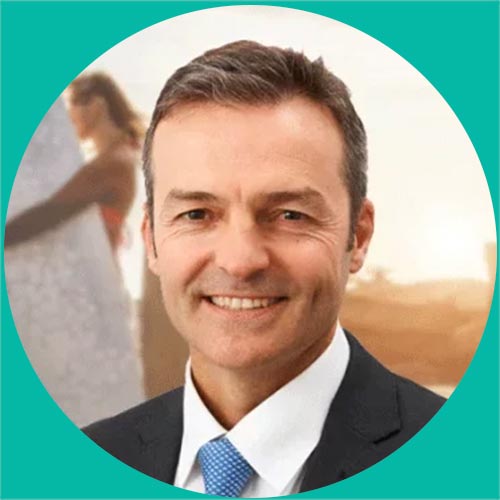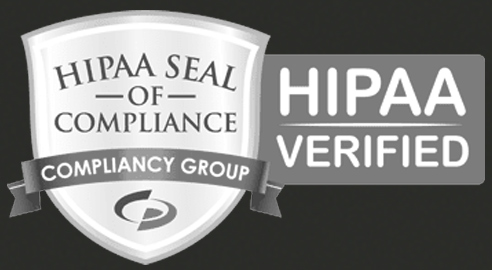
How to get what you want from your marketing agency
If you want to make the most out of the time and money you invest in marketing, a long-term relationship with your marketing agency is beneficial.
Staying with the same agency over a long period of time not only saves you from going through endless sales pitch cycles and attempts to re-invent the wheel – it also helps you grow your business faster.
Nowadays, most client-agency relationships last shorter than three years. That is more than four years shorter than the average client-agency relationship in 1984.1 http://bedfordgroupconsulting.com/marketing-insights/agency-relationship-sustainability/
3 years is less time than both agencies, and clients would like their relationships to last. Switching agencies costs time and money. We explained what causes the 3-year itch here.
Making the client-agency relationship long-lasting and rewarding requires effort from both sides.
Here’s how giving clear and precise feedback at the right time will help you get what you want from your marketing agency (and save money, too). You might just become your agency’s new favourite client in the process.
Give input at the right stage
Your marketing agency will likely present a strategy plan to you early on. This is the ideal point to give input, ask questions and ensure you understand the plan they present and what it means to your business.
At this point, the client-agency relationship is often fresh. Clients feel motivated to grow their business and might hold back on sharing doubts – and even, disagreement.
We encourage customers to be open if the presented plan or elements don’t make sense to them or make them feel uneasy. If the customer waits to question the strategy just before or after launching campaigns or deliverables, time delays and additional costs will occur.
Choose data over preference
The reason you hired your marketing agency is to benefit from their expertise and experience in your industry. They have spent years learning how to grow practices – just like you have spent years learning how to do surgery.
If there is doubt regarding elements of your strategy or deliverables, ask for data that proves that the presented item works to convert in similar markets to yours.
Your agency should be happy to provide averages and case studies – they know that the customers who end up successfully growing their business are the ones who chose to do what the data suggests over their preferences or gut feelings. Read about how we test what works with conversion rate optimization here.
Know the goal
You are likely not a professional marketer. So, it’s only natural that you would have many myths and misconceptions about an unfamiliar subject.
Your marketing agency will try their best to provide context and tie the deliverable in question to the agreed-on strategy and goal. Most misunderstandings and project delays happen because customers and agencies are not on the same page about the goal of each marketing deliverable.
For example, clients might believe that the goal of their laser suitability self-test is to give the patient a precise answer on their suitability for laser eye surgery. While that can be a benefit of the self-test, your marketing agency knows that the job of the self-test is to collect leads.
Understanding the Customer Value Journey is helpful for clients because it makes it easier to know the goal in each stage. If you’re unsure, ask for clarification.
NOTE: The best way to answer that nagging question about practice growth or marketing or patient volume in the back of your mind is to book a free 15-minute compatibility call. Get some options and go away with a clear idea of what’s possible.
Be specific
When it comes to giving feedback, there is one thing that will increase the chance of getting what you want from your marketing agency significantly: specificity.
The more details you provide, the higher the chance that your agency can react to feedback quickly and accurately.
Don’t worry about anticipating when your agency is going to ask you for something. Experienced agencies will have a process to ask you for information before they need it.
Example of feedback that is too vague:
- “I don’t like the colours on my website.”
- “I think this e-mail needs more oomph.”
- “This blog post isn’t relevant to what I do as a surgeon.”
Examples of specific feedback:
- “I’d prefer green instead red. Is there a reason why red would perform better than green?”
- “I think the subject line won’t get my patients to open this e-mail.”
- “Please clarify the aim of this blog post. I don’t understand why my target audience would read this.”
Another way to make your feedback more specific is to attach screenshots, links and highlight words or paragraphs in the received material. Your agency will not have to guess what your feedback relates to and this will save you time.
Tip: Use loom.com to film quick video messages sharing your screen to save time and energy when giving feedback. You won’t have to type your feedback points or attach screenshots. Instead, you can simply share the video link with your agency.
Prioritise feedback points
As a business owner, you likely have a million things in your head at all times. It might feel hard to sort through the list of to-do’s you know will need to get done – you might even feel overwhelmed.
An important lesson for all business owners is that perfectionism can kill your business. Trying to solve every problem at once can stand in the way of productivity, overload your team or agency and prevent your main goal: business growth.
To make progress on your marketing goals, learning how to prioritise correctly is key. When asked to provide feedback on a marketing deliverable, we recommend you sort your comments in order of priority.
Eisenhower’s matrix helps you and your agency decide what to work on first. Importance relates to a task’s impact on growing your business. Urgency relates to how quickly a task needs to be carried out to have a positive effect or prevent a negative effect on business growth.

Do: This is only for tasks that are urgent and important. Example: Your e-mail campaign is live. You have noticed that patients can’t get through to you – the phone number in the e-mails is wrong. You ask your agency to change the phone number immediately.
Schedule: This is for tasks that are important but not urgent. Example: Your website is due to launch in four weeks, and you are asking your agency to change the phone number on your booking page.
Delegate: This is for tasks that are not important but urgent. Example: You’ve lost access to your Facebook page and wanted to share a post about tomorrow’s optometrist event. You ask an internal team member to log in and post this for you.
Eliminate: This is for tasks that are neither urgent nor important.
Example: You’d like to plan brochures to hand out to patients while waiting for their appointment. You ask your agency to note the idea in a Bottleneck & Opportunities list to return to at the next planning meeting. There could be some important bottlenecks or ideas here, but they aren’t delegatable just yet.
You’ve now learned how to give feedback at the right stage, with the right amount of detail and in the correct order.
Try applying your new knowledge the next time you are asked to review a deliverable from your agency.
NOTE: The best way to answer that nagging question about practice growth or marketing or patient volume in the back of your mind is to book a free 15-minute compatibility call. Get some options and go away with a clear idea of what’s possible.
About the author

Elisa Friedl
Customer Success & Growth Manager
Hi, I’m Elisa. As a Success & Growth Manager at LiveseySolar, I work as a junction between our customers and our team.
Since joining LiveseySolar in 2019, I’ve learned how to develop meaningful relationships with your patients by designing strategies to generate awareness, engage your audience, utilise lead magnets, entry point offers and profit maximisers to amplify core offers and increase sales.
I also lead LiveseySolar’s Paid Traffic Campaigns aiming to get you in more leads from Google and social media advertising.
Seeing my customers grow their businesses and surpass their goals makes me proud.
Related Posts
Meet our Co-Founders
We’re passionate about helping leaders of high-quality, growth-minded practice owners double their practice revenue

Rod Solar
Founder & Scalable Business Advisor
For over 20 years, I’ve helped ophthalmology entrepreneurs scale their private practices. I specialise in doubling revenue within three years by offering a proven framework, hands-on experience, and a team of experts who implement what works. We take the guesswork out of growth and scale, so you can focus on delivering exceptional patient care while maximising the value of your business.
LiveseySolar completely transformed the way we were approaching this… We’ve gone from having just the dream of having a practice to having a practice up and running with people making inquiries and booking for procedures… It’s extremely pleasing. We feel lucky we connected with LiveseySolar.
— Dr Matthew Russell, MBChB, FRANZCO, specialist ophthalmic surgeon and founder of VSON and OKKO

Laura Livesey
Founder & CEO
I’m the co-founder & CEO of LiveseySolar. I’ve developed powerful eye surgery marketing systems that increase patient volumes and profits for doctors, clinics, and hospitals, since 1997.
Rod and Laura know as much about marketing surgery to patients as I know about performing it. They are an expert in the field of laser eye surgery marketing. They know this industry inside out. I believe that they could help many companies in a variety of areas including marketing materials, sales training and marketing support for doctors.
— Prof. Dan Reinstein, MD MA FRSC DABO, founder of the London Vision Clinic, UK











